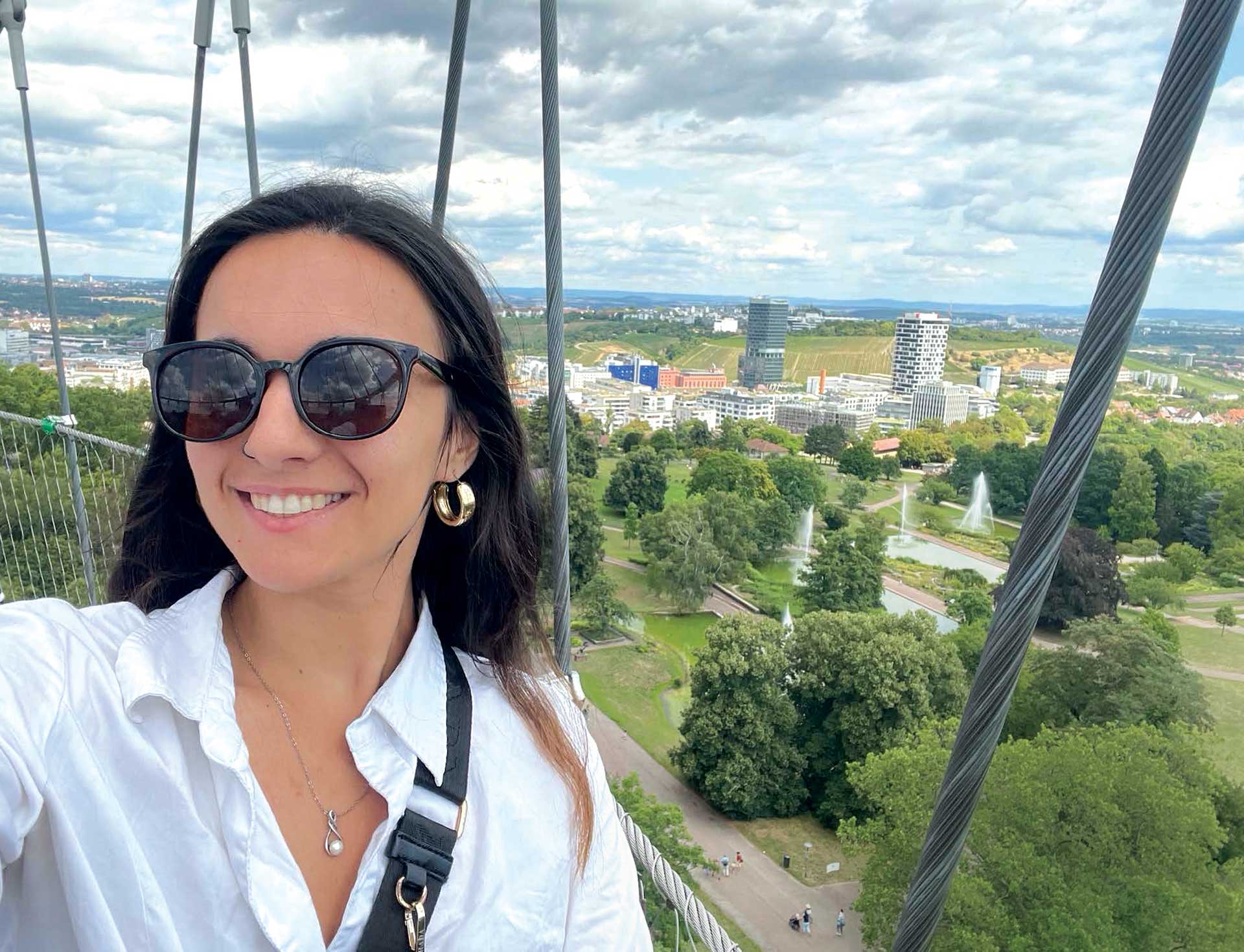 Engages
Engages All the Senses

Engages All the Senses
BY STACEY MICKELBART
Over 400 programs in 60 countries on six continents, ranging from a week to a semester: College of Agriculture students have an abundance of study abroad opportunities.
Program leaders like Elizabeth Karcher, professor of animal sciences, help students make sense of the vivid sensory experience of studying abroad. And as a Dean’s Fellow, she worked with International Programs in Agriculture after the pandemic to assess the college’s study abroad strategy.
Karcher, who leads trips to Italy and Vietnam, says that students often select programs based on their plan of study, but she observes growth well beyond the topical material. “I see a difference in the confidence that students build by participating in the international experience. Many have an increased awareness of their own culture when they start exploring other cultures. We also frequently observe an increase in students’ curiosity to engage with diverse others and explore new international locations.”
Study abroad staff coach instructors on how to implement deliberate intercultural assignments before or during programs and how to guide students in reflecting afterward on their intercultural development. Agricultural employers seek to hire graduates with interpersonal skills that can be gained by study abroad participation, Karcher says. “There are opportunities in study abroad programming to prepare our graduates with the essential skills that will increase their success in the workforce.”
Study abroad also expands Karcher’s faculty experience. “I love working with students outside of class and the relationships you build with them,” she says. Most importantly, she grows alongside them. “We’re all lifelong learners in this process of intercultural development.”
Ally Schimpf,
animal sciences
9 days in Quito and the Galapagos Islands of Ecuador,
studying the environment and
culture of the Galapagos
Biggest thing I learned:
Book the trip! The preparation can seem daunting with getting a passport, figuring out packing and finding the time to go, but there is truly no better way to learn about another culture or experience nature than by fully immersing yourself in them.
What surprised me:
I was surprised by how close we were all able to get to the wildlife. Most lack any fear of people, allowing for up-close observations in a way not possible anywhere else I have been. Sea lions would even attempt to play with us in the water while we were snorkeling!
Schimpf at the El Chato Ranch Giant Tortoise Reserve on Santa Cruz in the Galapagos.
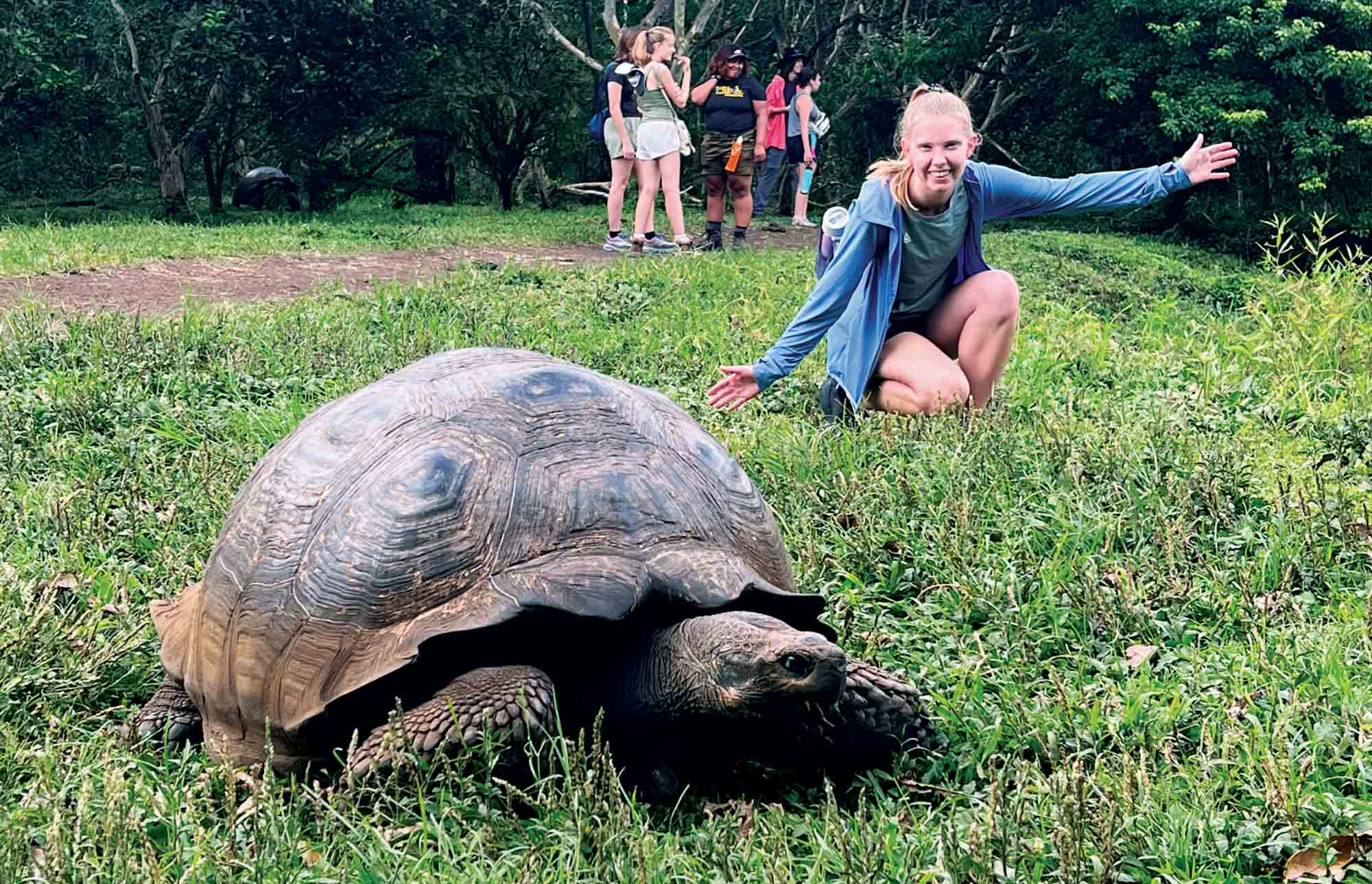

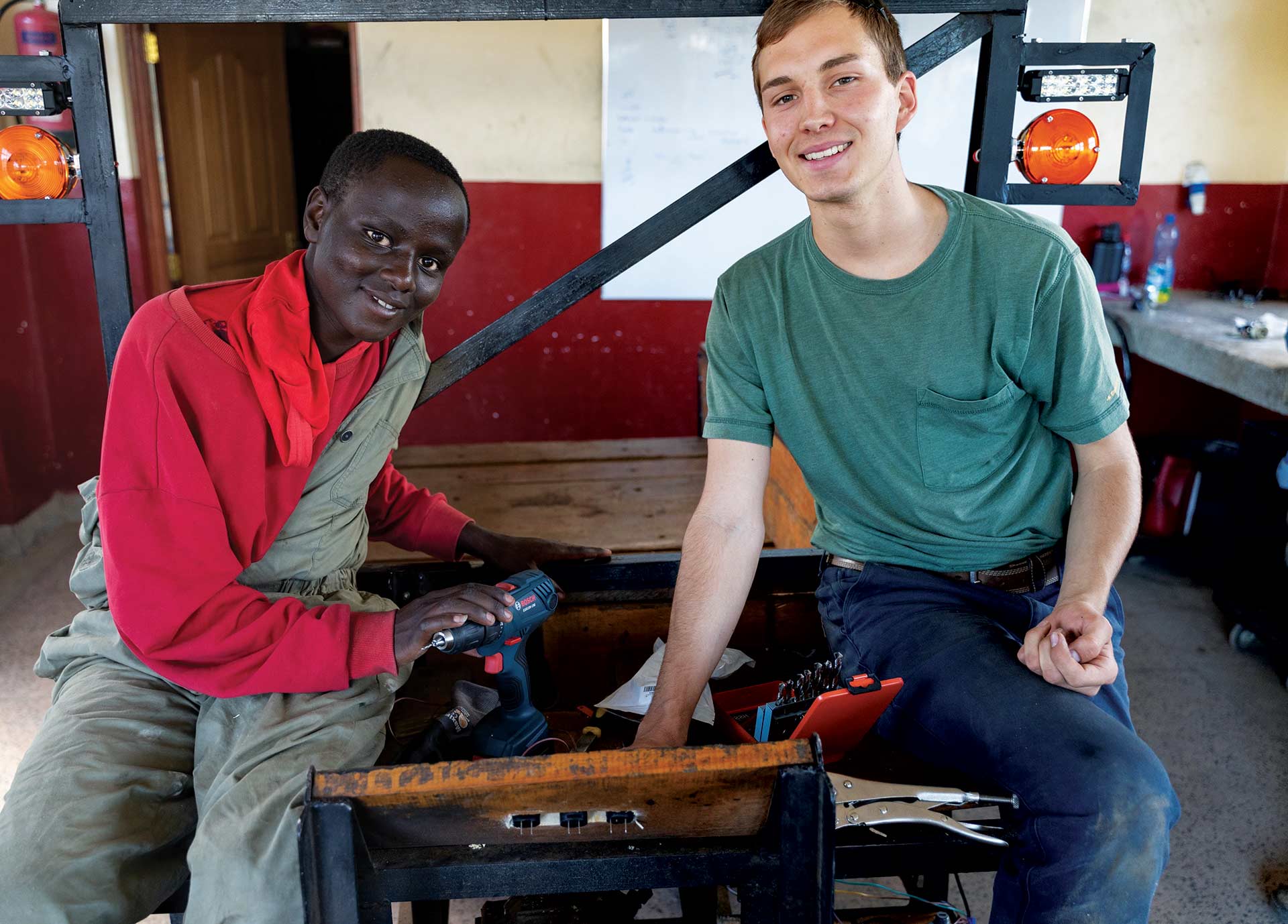
Reece Durbin,
agricultural and biological engineering
2 weeks in Eldoret, Kenya,
helping students upgrade utility vehicles used for agricultural production and general transportation as part of the Purdue Utility Project
Biggest thing I learned:
I learned how rewarding it can be to serve others out of humility. Often times, I take for granted all the opportunities that I’ve been given. The Kenyan students were extremely grateful for our help and invested in learning how we were performing upgrades to their vehicles. Working with them reminded me to be thankful for little things in life and willing to learn from others.
What surprised me:
When we needed a part for a vehicle, it was not as simple as going to a hardware store with an array of options to choose from. It required going to multiple shops and piecing parts together, so I learned how resourceful Kenyans are. I was also surprised how well the Kenyan students spoke English. Despite a small language barrier, they found ways to communicate with us in their second language.
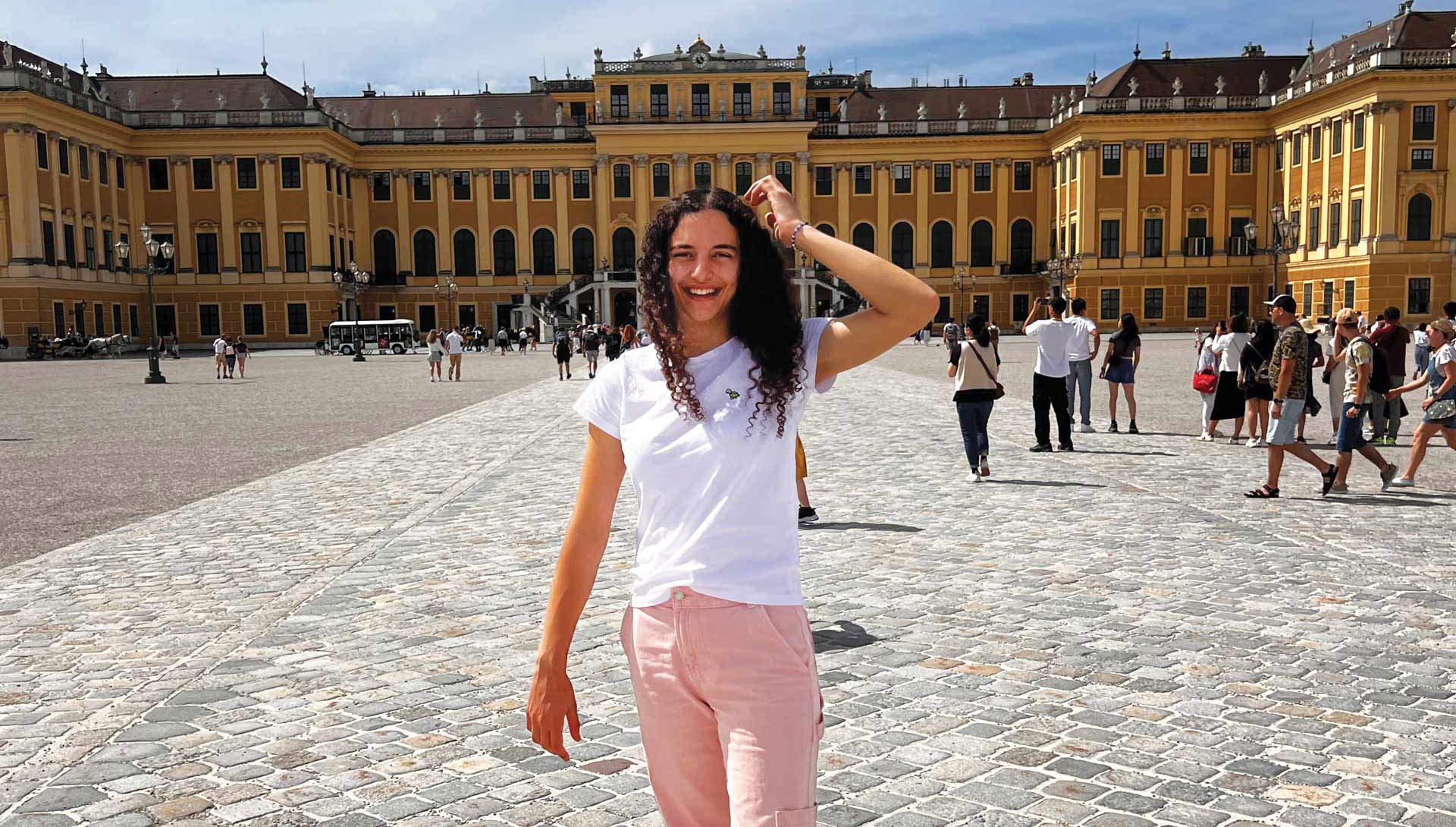
Amirah Haweit,
biochemistry
12 weeks in Düsseldorf, Germany,
studying quantitative genetics and plant genomics
Biggest thing I learned:
My most profound realization was the inherent similarity among people, transcending cultural and linguistic differences. Despite encountering language barriers, the ability to connect with individuals from very different backgrounds highlighted the universal thread that binds humanity.
What surprised me:
Everywhere was accessible by low-cost, easily available public transportation. I miss the always-available short train ride to get to the grocery store or taking trains across the country. This contrasted with the way that we travel everywhere by car in America and showed especially in the lack of parking lots.
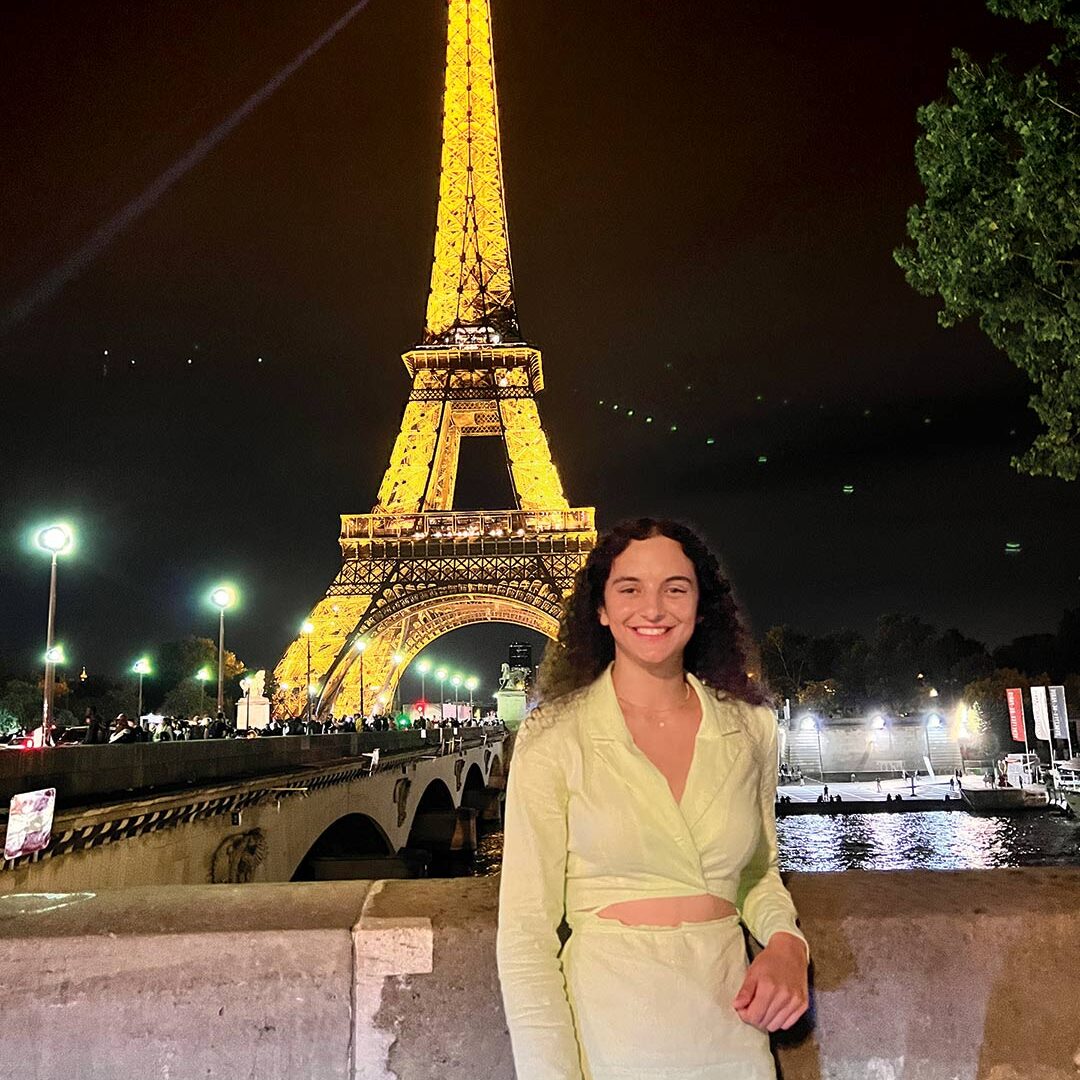
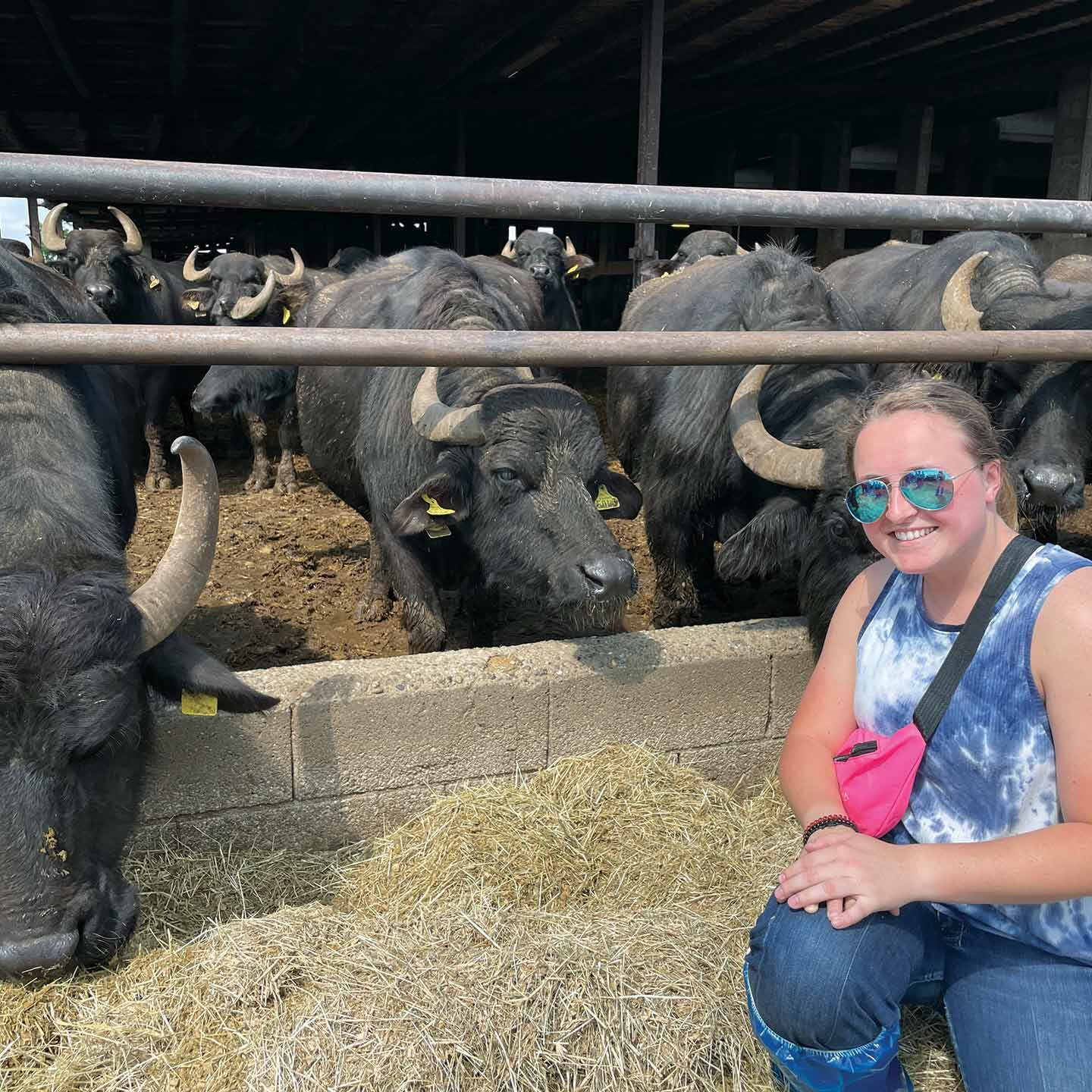
McKenna Wilson,
agricultural economics and animal sciences
10 days in Italy
studying animal production
Biggest thing I learned:
You have to play the hand you were dealt. During my trip there was a devastating flood in Bologna, and we had visits scheduled there. We couldn’t do anything about the natural disaster, so we made the best of it. I learned you just have to go with the flow, know that everything will be alright and believe that it will all work out in the end!
What surprised me:
We visited the city of Venice, where we learned that they have no wheels — the only transportation is by water. You watch people go about their everyday lives and actually understand how they operate: garbage barges, laundry vessels and UPS boats are all common in the canals of Venice. It’s eye-opening to understand that there are alternative ways to function compared to the U.S.
Diana Ikanovic,
agribusiness
8 weeks in France in 2022
to study viticulture and European agricultural policy;
8-week internship in summer 2023 at the University of Hohenheim in Stuttgart, Germany researching the effects of the EU Green New Deal on Southern African food
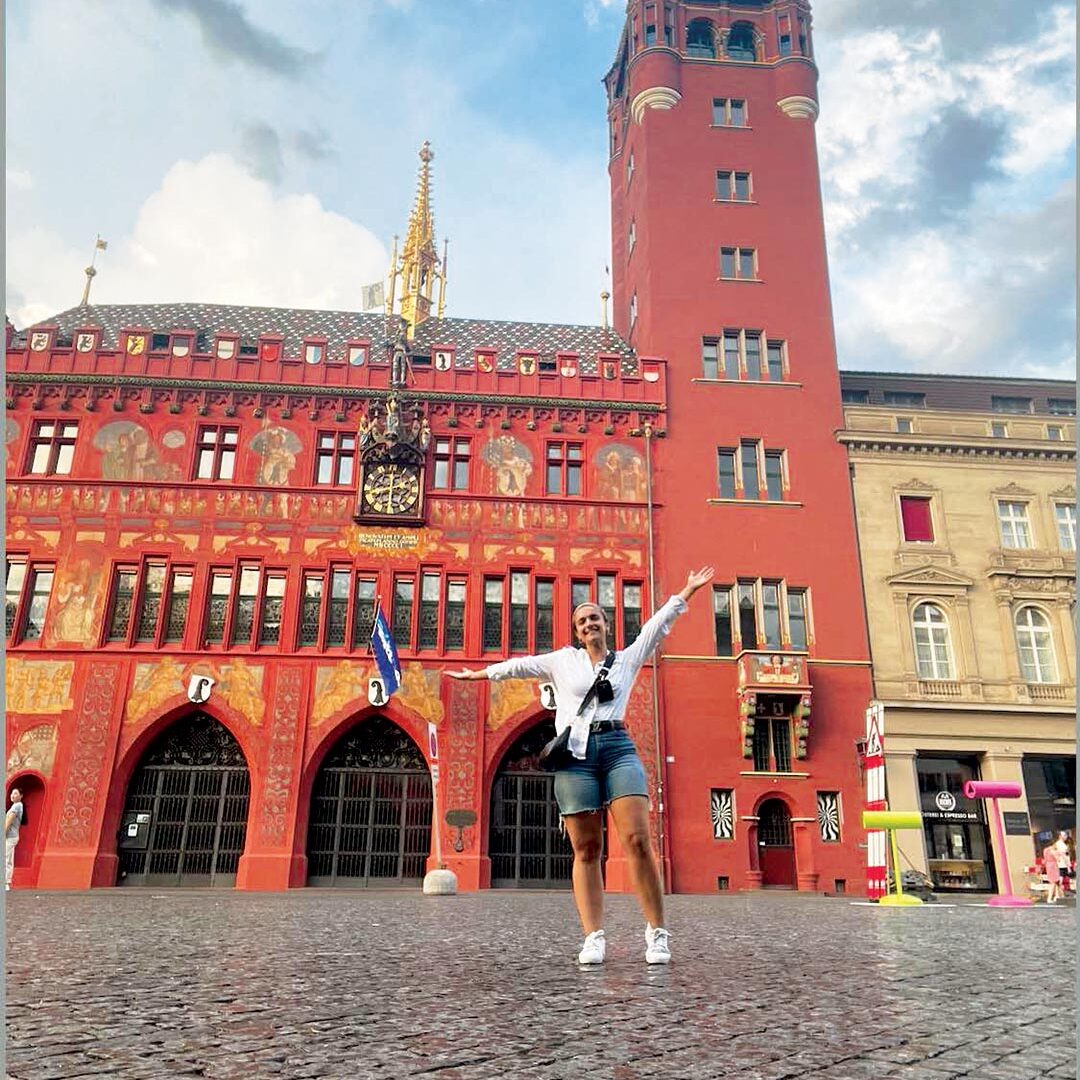
Biggest thing I learned:
I want to pursue my master’s degree in Germany following my graduation. Since I'm a first-generation student, I'm not that familiar with education past a bachelor’s degree. While working at the university, I learned that I want to further my education in agricultural policy.
What surprised me:
There is no free Wi-Fi anywhere in Germany, which has very strict rules about internet safety. It came as quite a shock when I arrived and wasn't able to find Wi-Fi anywhere, even indoors. I recommend buying an eSIM before traveling there to help you contact your family or to use map apps to get around.
